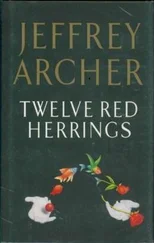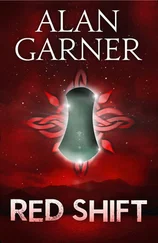Alan Bradley - A Red Herring Without Mustard - A Flavia de Luce Novel
Здесь есть возможность читать онлайн «Alan Bradley - A Red Herring Without Mustard - A Flavia de Luce Novel» весь текст электронной книги совершенно бесплатно (целиком полную версию без сокращений). В некоторых случаях можно слушать аудио, скачать через торрент в формате fb2 и присутствует краткое содержание. Жанр: Старинная литература, на русском языке. Описание произведения, (предисловие) а так же отзывы посетителей доступны на портале библиотеки ЛибКат.
- Название:A Red Herring Without Mustard: A Flavia de Luce Novel
- Автор:
- Жанр:
- Год:неизвестен
- ISBN:нет данных
- Рейтинг книги:4 / 5. Голосов: 1
-
Избранное:Добавить в избранное
- Отзывы:
-
Ваша оценка:
- 80
- 1
- 2
- 3
- 4
- 5
A Red Herring Without Mustard: A Flavia de Luce Novel: краткое содержание, описание и аннотация
Предлагаем к чтению аннотацию, описание, краткое содержание или предисловие (зависит от того, что написал сам автор книги «A Red Herring Without Mustard: A Flavia de Luce Novel»). Если вы не нашли необходимую информацию о книге — напишите в комментариях, мы постараемся отыскать её.
A Red Herring Without Mustard: A Flavia de Luce Novel — читать онлайн бесплатно полную книгу (весь текст) целиком
Ниже представлен текст книги, разбитый по страницам. Система сохранения места последней прочитанной страницы, позволяет с удобством читать онлайн бесплатно книгу «A Red Herring Without Mustard: A Flavia de Luce Novel», без необходимости каждый раз заново искать на чём Вы остановились. Поставьте закладку, и сможете в любой момент перейти на страницу, на которой закончили чтение.
Интервал:
Закладка:
“And what has this to do with me?” she asked, putting down the lorgnette and then picking it up again.
“Oh, somebody mentioned that you belonged to that … faith. I was talking to Miss Mountjoy, and she—”
True enough—I had been talking to Miss Mountjoy. As long as I didn’t actually say that she’d told me, I’d be guilty of no great sin. Other than one of omission, perhaps. Feely was always going on and on about sins of commission and omission until your eyes were left spinning like fishing lures.
“Tilda Mountjoy,” she said, after a long pause. “I see … tell me more.”
“Well, it’s just that I’ve been making a few notes about Buckshaw’s history, you know, and as I was going through some old papers in Father’s library, I came across some quite early documents.”
“Documents?” she demanded. “What kind of documents?”
She was rising to the bait! Her thoughts were written on her face as clearly as if they were tattooed on her cheeks.
Old papers relating to Nicodemus Flitch and the Hobblers ? she was thinking. Now here’s my opportunity to pull the rug out from under dear, dull-as-ditchwater old Tilda, and her long-winded papers in the Hobblers’ Historical Society Journal. Former librarian be blowed! I’ll show her what real research can bring to light .
And so forth.
“Oh, just odd bits and pieces,” I said. “Letters to one of my ancestors—Lucius de Luce—about this and that—
“Just a lot of names and dates,” I added. “Nothing terribly interesting, I’m afraid.”
This was the cherry on the icing—but I would pretend to brush it off as worthless.
She was staring at me through her lenses like a birdwatcher who has unexpectedly come upon the rare spotted crake.
Now was the time to keep perfectly still. If my words hadn’t primed the pump of curiosity, then nothing would.
I could almost feel the heat of her gaze.
“There’s more,” she said. “What is it? You’re not telling me the whole truth.”
“Well,” I blurted, “actually, I was thinking of asking if I might be allowed to convert to the Hobblers. We de Luces are not really Anglicans, you see—we’ve been Roman Catholics for ages, but—Feely was telling me that the Hobblers were non—non—”
“Nonconformists?”
“Yes, that’s it—Nonconformists, and I thought that, since I’m a nonconformist myself … well, why not join?”
There was a grain of truth in this: I remembered that one of my heroes, Joseph Priestley, the discoverer of oxygen, had once been the minister of a dissenting sect in Leeds, and if it was good enough for the esteemed Joseph—
“There’s been a great deal of debate,” she said reflectively, “about whether we’re Nonconformists or Dissenters, what with our Reconstitution in 17—”
“Then you are a Hobbler!”
She stared at me long and hard, as if thinking. “There are those,” she said, “who work to preserve the foundations upon which their forefathers built. It is not always easy in this day and age …”
“It doesn’t matter to me,” I said. “I’d give anything to be a Hobbler.”
And in a way it was true. I had visions of myself limping cheerily along a country lane, my arms outstretched for balance, teetering like a tightrope walker, as I veered crazily from hedge to hedge.
“I’m a Hobbler,” I would shout out to everyone as I stumped past.
As I was hobbling to St. Ives …
“Most interesting,” the woman was saying as I came back to reality. “And is your father aware of your aspirations?”
“ No! ” I said, aghast. “Please don’t tell him! Father is very set in his ways and—”
“I understand,” she said. “We shall let it be our little secret, then. No one but you and I shall know about any of this.”
Hey presto!
“Oh, thank you ,” I breathed. “I knew you’d understand.”
As she rattled on about the Act of Toleration, the Five Mile Act, the Countess of Huntingdon, and the Calvinist Connection, I took the opportunity to look around the room.
There wasn’t much to see: the bed, of course, which, now that I had time to think about it, reminded me of the Great Bed of Ware in the Victoria and Albert Museum. In a far corner near a window was a small table with an electric ring and a small kettle, a Brown Betty teapot, a biscuit tin, and a single cup and saucer. Reginald Pettibone was evidently not in the habit of having breakfast with his wife.
“Would you care for a biscuit?” she asked.
“No, thank you,” I said. “I don’t use sugar.”
It was a lie—but an excellent one.
“What an unusual child you are,” she said, and with a wave of the hand towards the tin, she added, “Well, then, perhaps you won’t mind fetching one for me. I have no such scruples.”
I went to the window and reached for the biscuit tin. As I turned, I happened to glance outside—down into the fenced area behind the shop’s back door.
A rusty green van stood with its double doors open, and I knew instantly that it was the one I’d seen parked outside Willow Villa.
As I watched, a powerful man in shirtsleeves stepped into view from somewhere below. It was the bulldog man—the man who had almost caught me in the coach house!
Unless I was sadly mistaken, this would be Edward Sampson, of Rye Road, East Finching—whose name I had found on the papers in the glove compartment.
As I stood rooted to the spot, he reached into the back of the van and dragged out a couple of heavy objects. He turned and, perhaps feeling my eyes upon him, looked straight up at the window where I was standing.
My immediate reaction was to shrink back—to step away from the glass—but I found that I could not. Some remote part of my mind had already spotted a detail that was only now leaking slowly into my consciousness, and I’m afraid I let out a gasp.
The objects gripped in the hands of the bulldog man were Harriet’s firedogs—Sally Fox and Shoppo!
 EIGHTEEN
EIGHTEEN 
“WHAT IS IT?” THE woman asked. Her voice seemed to be coming from a very great distance.
“It’s—it’s—”
“Yes, dear … what is it?”
It was the “dear” that brought me snapping back. A “dear” or “dearie” to me is about as welcome as a bullet to the brain. I’ve had places reserved in the ha’penny seats of Hell for people who address me in this way.
But I bit my tongue.
“It’s—just that you have such a smashing view from your window,” I said. “The river … Malplaquet Farm … all the way to East Finching and the hills beyond. One would never suspect, walking in the high street, that such a—”
There was a floor-shaking crash from downstairs as some heavy object was dropped. A couple of muffled curses came drifting up through the floorboards.
“Reginald!” the woman shouted, and there was an awkward silence in the depths.
“Men!” she said, loudly enough to make herself heard downstairs. “Windmills on legs.”
“I think I’d better go,” I said. “They’ll be expecting me at home.”
“Very well, dear,” she said. “Run along, then. And don’t forget about those letters. You may bring them whenever you’re able.”
I did not tell her what I was thinking, but rather, gave a very small mock curtsy, then turned and made my way down the narrow stairs.
At the bottom, I glanced towards the back of the shop. Reginald Pettibone and the owner of the van stood staring at me from the shadows. Neither of them moved or spoke, but I knew, in the way we females are supposed to know, that they had been talking about me.
Читать дальшеИнтервал:
Закладка:
Похожие книги на «A Red Herring Without Mustard: A Flavia de Luce Novel»
Представляем Вашему вниманию похожие книги на «A Red Herring Without Mustard: A Flavia de Luce Novel» списком для выбора. Мы отобрали схожую по названию и смыслу литературу в надежде предоставить читателям больше вариантов отыскать новые, интересные, ещё непрочитанные произведения.
Обсуждение, отзывы о книге «A Red Herring Without Mustard: A Flavia de Luce Novel» и просто собственные мнения читателей. Оставьте ваши комментарии, напишите, что Вы думаете о произведении, его смысле или главных героях. Укажите что конкретно понравилось, а что нет, и почему Вы так считаете.












